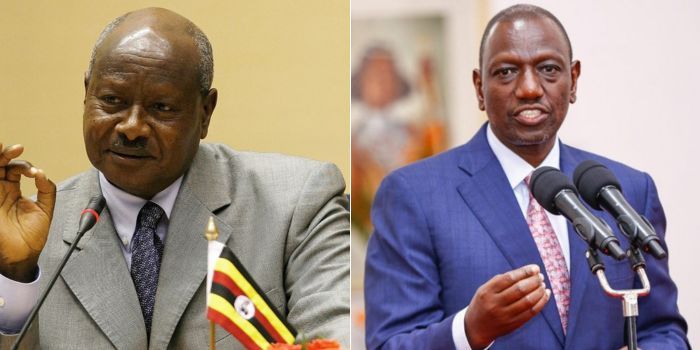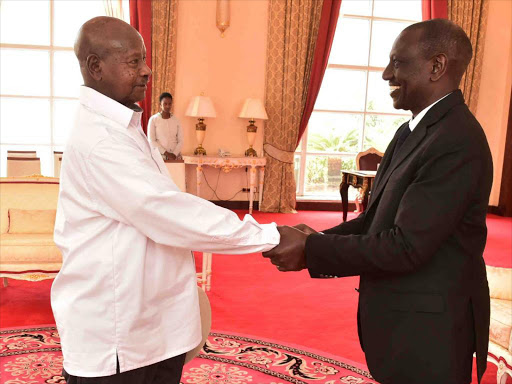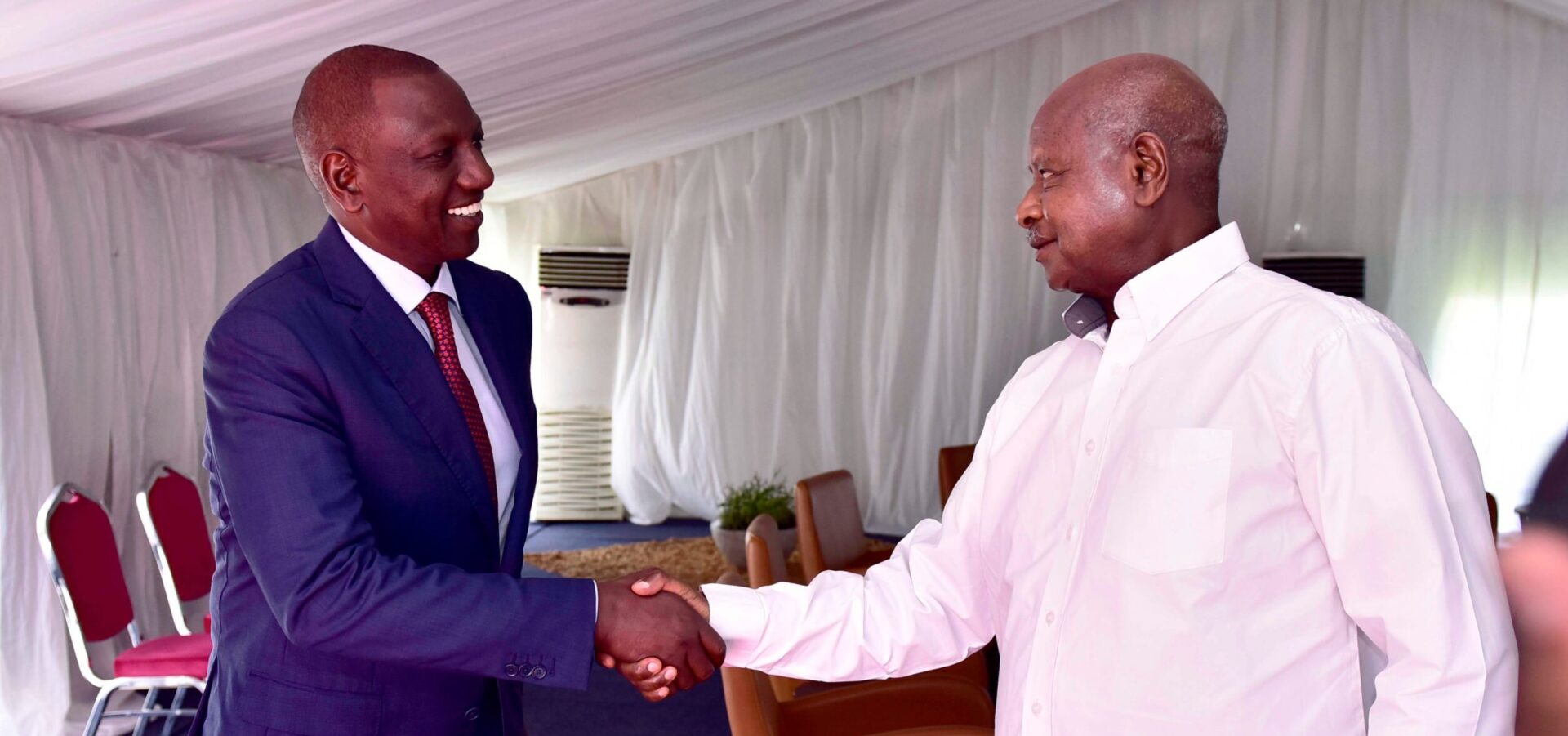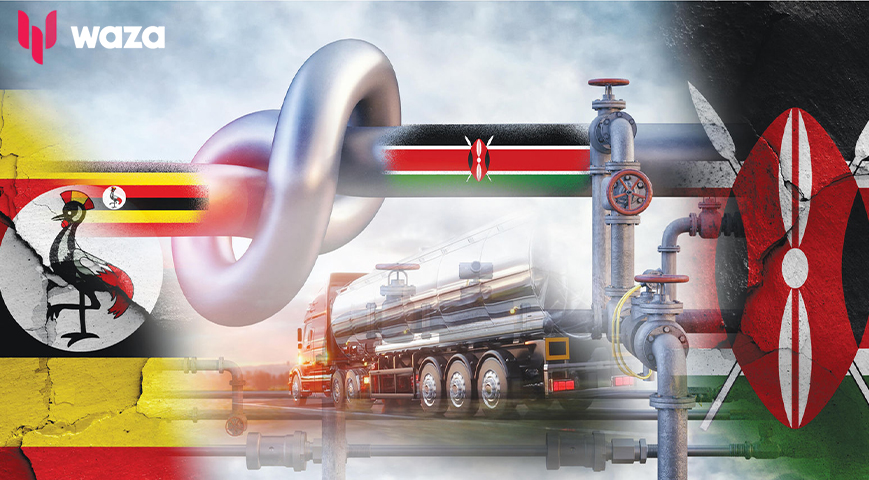President William Ruto will meet with President Yoweri Museveni of Uganda to resolve their diplomatic differences, according to Secretary of the Cabinet for Regional Development, ASALs, and the East African Community Peninah Malonza.
According to Malonza, the two heads of state have arranged a meeting after Kenya forbade Uganda from utilizing the Kenya Pipeline Company (KPC) infrastructure to transport its refined petroleum products from the Mombasa port to Uganda by a new agreement mandated by Uganda's Cabinet.
She additionally disregarded fears that the trade standoff might hinder fostering diplomatic ties between the two nations, showing certainty that the summit will yield beneficial resolutions.

Uganda terminated its oil contracts with Kenya in November of last year, claiming that the country's fuel crisis had been made worse by their procurement of oil products at outrageous prices from intermediaries in Kenya.
Did you read this?
Uganda imports more than 90% of its petroleum products through the Port of Mombasa in Kenya and the rest through the Dar es Salaam port in Tanzania.
Through the importation structures in Kenya and Tanzania, the licensed Ugandan Oil Marketing Companies (OMCs) carried out the importation independently.
On January 2, 2024, Uganda filed a lawsuit against Kenya for refusing its organization, the Uganda National Oil Company (UNOC), permission to conduct business in Kenya as an Oil Marketing Company (0MC).

Through the UNOC, Uganda had sought to move fuel products through the Kenya Pipeline. Still, the Energy and Petroleum Regulatory Authority (EPRA) directed it to register as an oil marketer in Kenya to use the pipeline.
The EPRA had requested that UNOC comply with several requirements, including business registration certificates, work permits, tax compliance certificates, identification documents for all directors, and proof of financial capability, which included 6.6 million liters of super gasoline/gasoil, A1jet, or kerosene sold in Kenya, as well as evidence of running five licensed retail stations and a licensed depot with a turnover of USD 10 million over the previous three years.
UNOC claimed that it was a wholly State-owned company in Uganda that merely wanted to transport the products through Kenya and had no intention of doing business in Kenya, so it could only provide some of the necessary documentation and considered some of the requirements burdensome.

Uganda has brought the case before the East Africa Court of Justice (EACJ), accusing the Kenyan government of being incompetent in its refusal to provide exemptions that would have allowed it to operate outside of EPRA's regulations.









